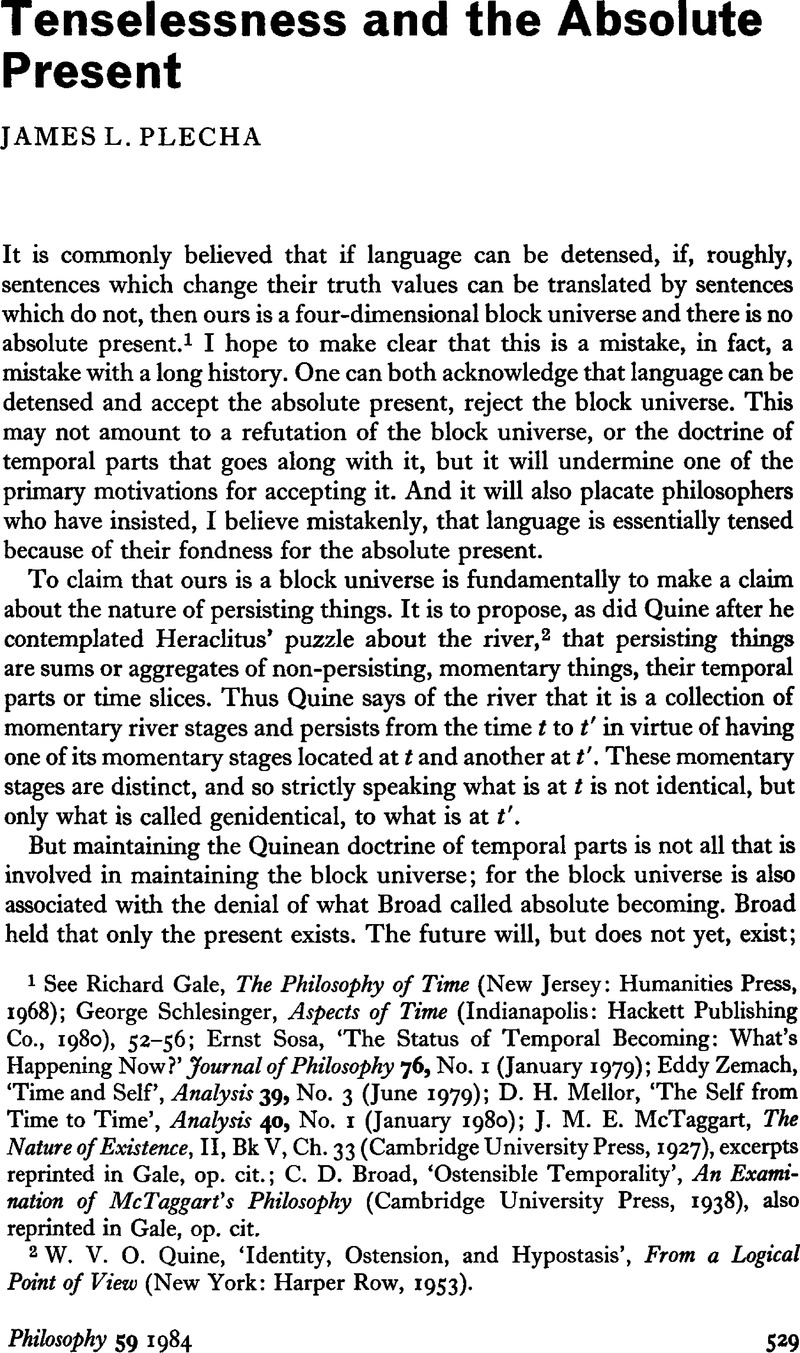Article contents
Tenselessness and the Absolute Present
Published online by Cambridge University Press: 30 January 2009
Abstract

- Type
- Discussion
- Information
- Copyright
- Copyright © The Royal Institute of Philosophy 1984
References
1 See Richard, Gale, The Philosophy of Time (New Jersey: Humanities Press, 1968Google Scholar); George, Schlesinger, Aspects of Time (Indianapolis: Hackett Publishing Co., 1980Google Scholar), 52–56; Ernst, Sosa, ‘The Status of Temporal Becoming: What' Happening Now?’ Journal of Philosophy 76, No. 1 (January 1979Google Scholar); Eddy, Zemach, Time andSelf, Analysis 39, No. 3 (June 1979Google Scholar); Mellor, D. H., ‘The Self from Time to Time’, Analysis 40, No. 1 (January 1980Google ScholarPubMed); McTaggart, J. M. E., The Nature of Existence, II, Bk V, Ch. 33(Cambridge University Press, 1927Google Scholar), excerpts reprinted in Gale, op. cit.; Broad, C. D., ‘Ostensible Temporality’, An Examination of McTaggart' Philosophy (Cambridge University Press, 1938), also reprinted in Gale, op. cit.Google Scholar
2 Quine, W. V. O., ‘Identity, Ostension, and Hypostasis’, From a Logical Point of View (New York: Harper Row, 1953).Google Scholar
3 McTaggart, and Broad, op. cit.Google Scholar
4 McTaggart, op. cit. 89.
- 1
- Cited by


